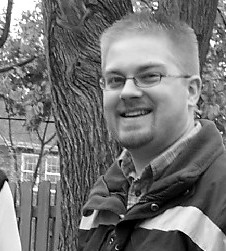Last year in Nashville, during a missions-focused lunch with Jim Hancock and Rich van Pelt, I heard this idea for the first time.
"People who work or live in places where we lead mission trips would rather have the money we spend on the trip directly than the week of work by students we can bring them."
Since all of us are becoming more aware of the stewardship required of us, in money, time, natural resources, etc. this idea is getting more and more play. The numbers are pretty large; in another parish I served, the mission trip took $11,000 in fundraising to pull off. Reading through any of the alternative-gift catalogs (places like World Vision and Heifer Int'l, for example) you can see that $11k is enough to make a pretty sizable difference in someone's life, sometimes even beating back poverty and illness for an entire village.
So the idea of gathering money and sending it in lieu of workers has a lot of merit. But like all ideas that live at the poles of a discussion, it's not good enough.
Neither, of course, is short-term missions, by itself. We're finding that out every year as some kids have their lives transformed, and others look the whole week through the lens of the water park trip at the end, or the chance to be in a strange new place and explore it a little. One week of missions, while intended as a life-changer, more often affects the week before and after the trip, and then tails off again.
Youth need to take these trips so they can see what life is like for people who need our service, and get the fire in the belly to do something about the conditions we're called by God to address. And people in the areas we serve need continuing support (either directly or through missions groups that work there year-round) to make sure the effect on their lives lasts more than a week too.
We'll accomplish much more with a lifestyle of missions than with a trip a year. Part of our preparation should be raising money to help the people we're going to serve. The work itself is another important part. And the third, ongoing part, is working with students, one-on-one or in small groups, to decide what they'll do about what they've seen. The result of this lifestyle will be better conditions for people who need them today, and a generation of students who see their entire lives as mission trips tomorrow.
10.17.2006
Subscribe to:
Post Comments (Atom)


No comments:
Post a Comment